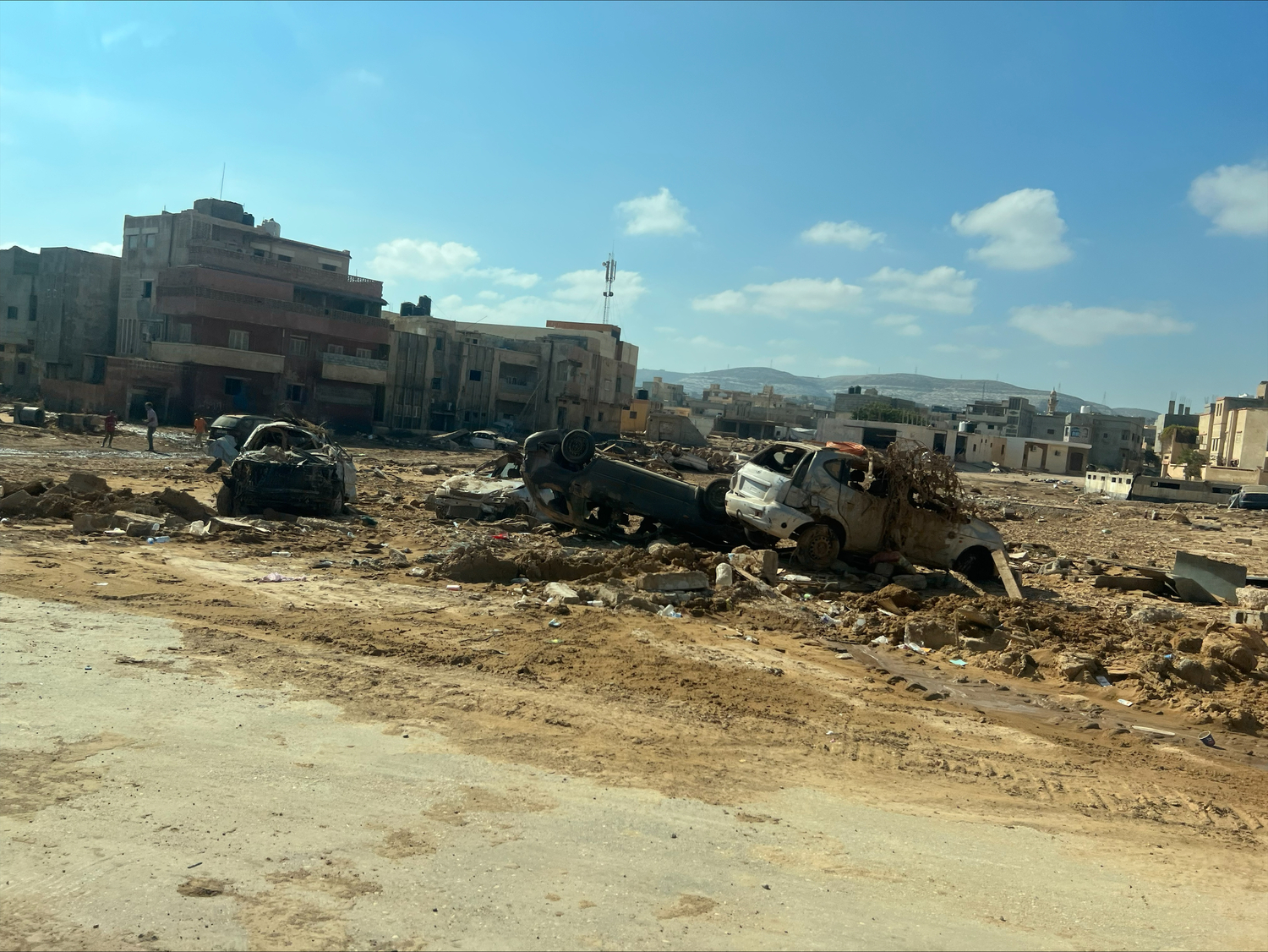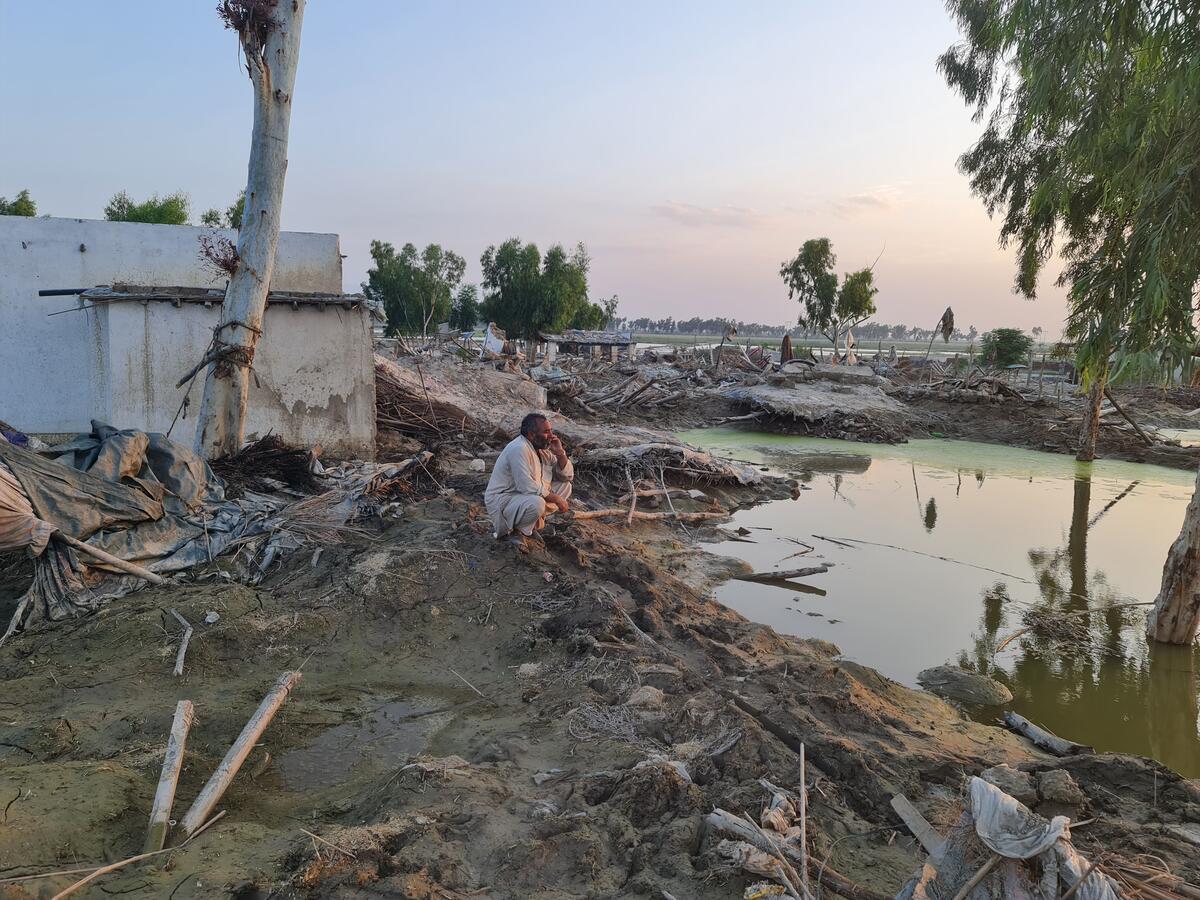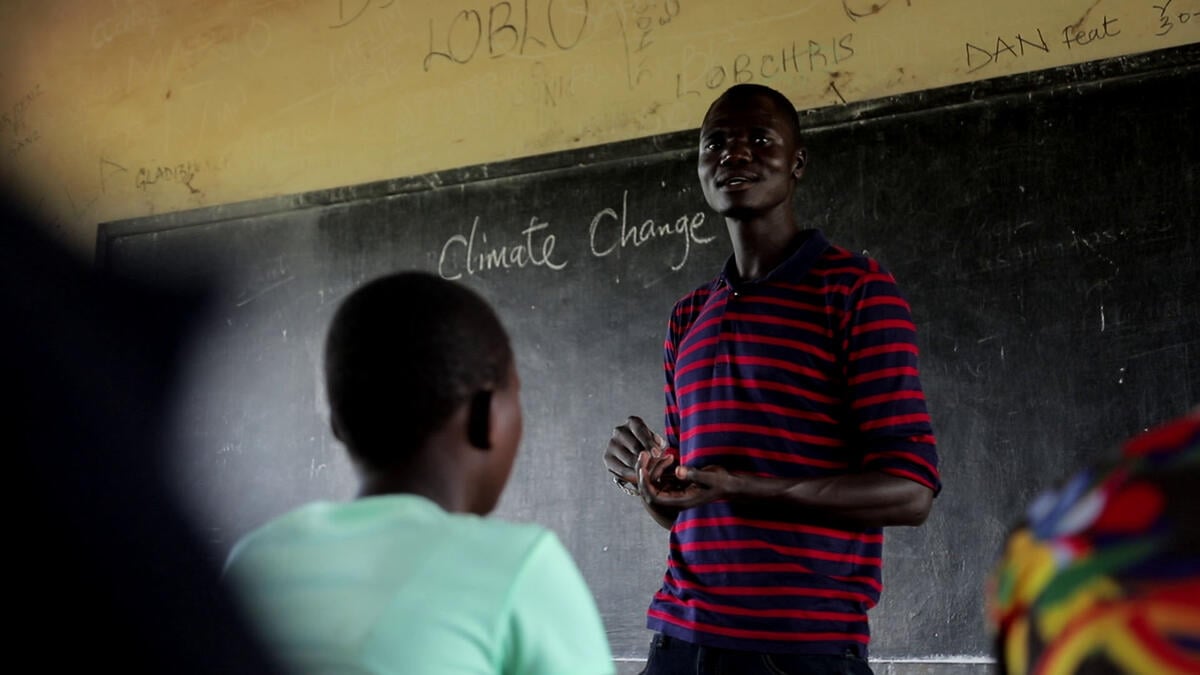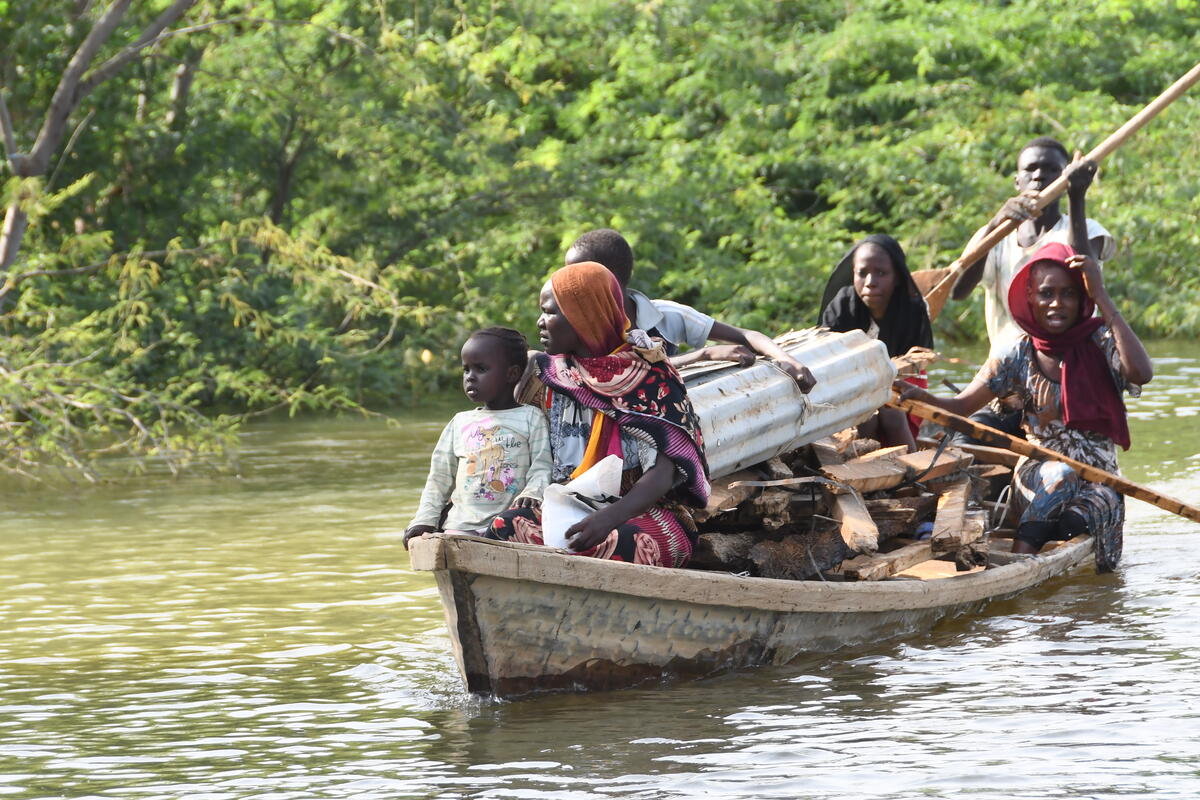Goodwill Ambassador Cate Blanchett calls for increased aid for Rohingya refugees
Goodwill Ambassador Cate Blanchett calls for increased aid for Rohingya refugees
COX’S BAZAR, Bangladesh – UNHCR Goodwill Ambassador Cate Blanchett today warned of a “race against time” to protect Rohingya refugees from the worst impacts of the upcoming monsoon season in Bangladesh.
Blanchett was visiting south-eastern Bangladesh, where over 671,000 children, women and men from Myanmar have sought safety since last August.
With wet season rains due next month, more than 150,000 refugees are at risk of landslides and floods, in what could become a disaster on top of the current emergency.
“The Rohingya refugees have already experienced targeted violence, human rights abuses and horrific journeys. They have shown unimaginable resilience and courage,” Blanchett said, speaking at the end of her visit to Kutupalong, Nyapara and Chakmarkul settlements this week.
“But now, as the monsoon season approaches, the Government of Bangladesh, supported by UNHCR and its partners, are in a race against time to ensure the refugees are as safe as they can be to deal with potential floods and landslides.”
In Chakmarkul settlement Blanchett met with 28-year-old Jhura, who fled Myanmar with her two children when her village was attacked six months ago. She now lives in a bamboo shelter built on the side of a steep hill.
“The monsoon is coming and I’m scared that the wind will blow away the roof. There are shelters above mine that would fall on us if there is a landslide. The ground will be slippery and I worry that it will be difficult to get about,” says Jhura, who became separated from her husband, whom she fears may have been killed.
“In Myanmar I was in a better house but I was still in fear of the monsoon – the roof would sometimes fly away and my children would sometimes get sick,” Jhura told Blanchett.
Blanchett met with other refugees at a transit centre supported by UNHCR, the UN Refugee Agency, as well as a temporary learning centre, an integrated women’s centre, a community kitchen and a livelihoods training centre.
“The monsoon is coming and I’m scared that the wind will blow away the roof."
Blanchett also spent time with a refugee singer, Mohammed, who supports his family by writing and performing poetic songs, known as ghazals, inspired by the events, stories and concerns of the refugee community. He performed a new ghazal about the Rohingya community’s fears about the upcoming monsoon, singing “if the rains come and the cyclones attack … what will the world do?”
Impressed by the scale and scope of the monsoon preparedness work currently underway Blanchett said: “I’ve seen first-hand how UNHCR – with its partners and with the refugees themselves – are working flat out to avoid an emergency within an emergency.
“Staff are on the ground distributing shelter and pre-monsoon kits to the vulnerable families, reinforcing roads, bridges, steps and other infrastructure that risk being washed away, and relocating families to safer places where land is available. But more is urgently needed to ensure refugees stay safe.”
Calling for the international community to show solidarity and share the responsibility of this crisis with the Government and people of Bangladesh, Blanchett said: “The people of Bangladesh and host communities have been the first to respond to this crisis, supported by agencies like UNHCR and its partners. But I cannot stress how much more help is needed for these vulnerable stateless refugees, the majority of whom are women and children.”
Your support is urgently needed to aid refugee children, women and men in Bangladesh. Please give now.














